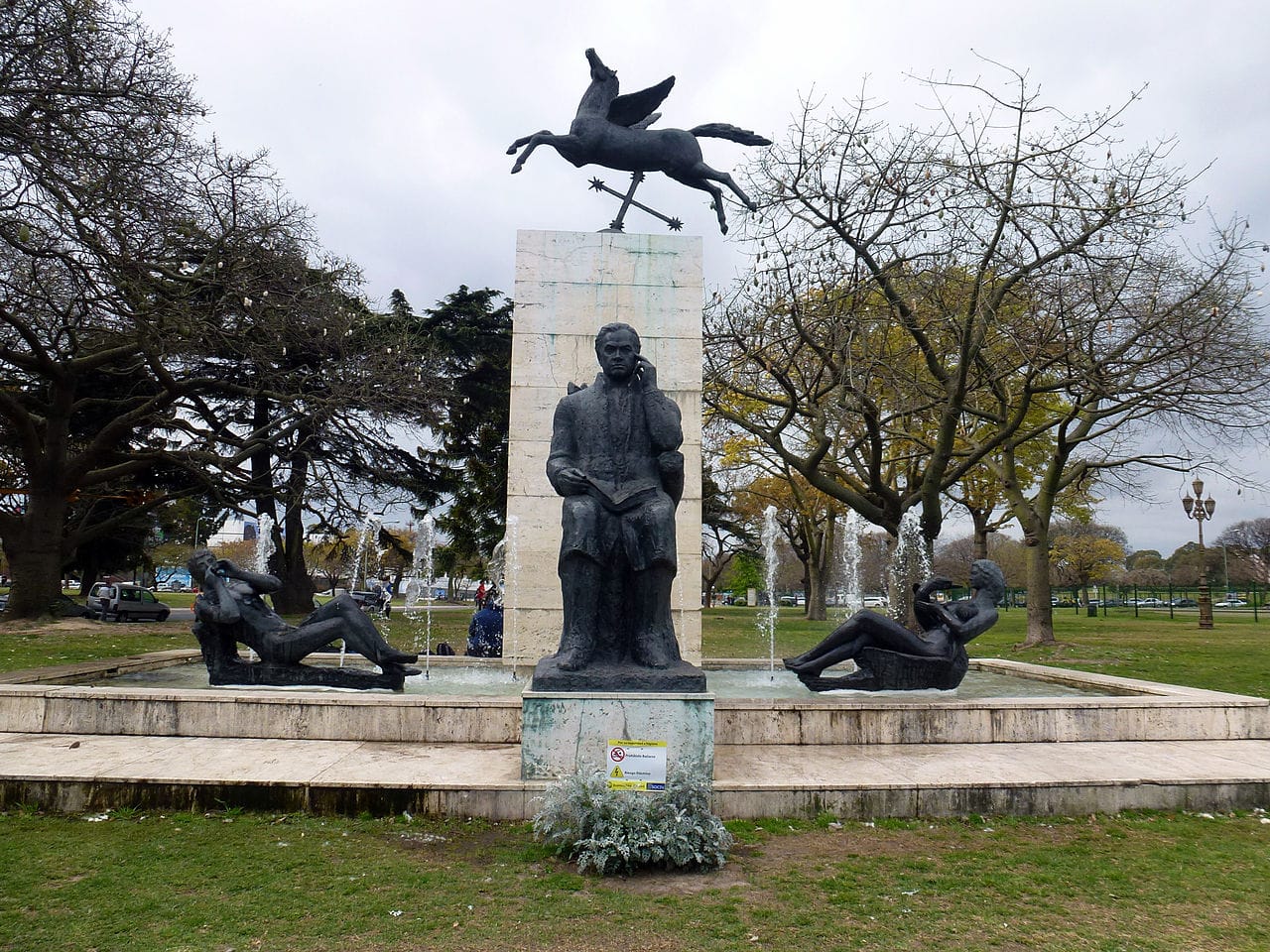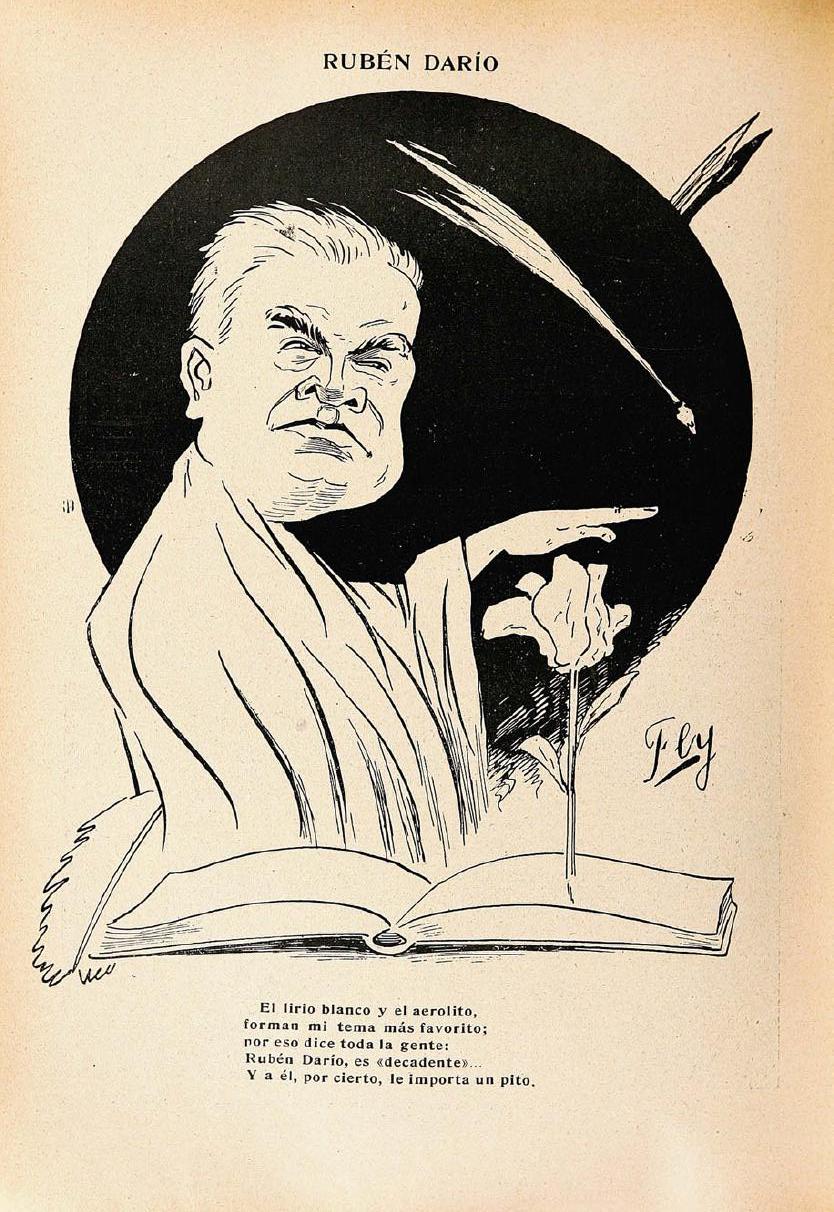
One of the main virtues of Rubén Darío It was the metric and verbal renewal to which he subjected poetry thanks to his innovations in this field, which are felt above all in one of his works, which is none other than "Profane Prose". This book, edited and published for the first time in Buenos Aires in 1896, represents the triumph of modernism in Rubendarian aesthetics as well as its moment of plenitude.
The innovation comes to us from the title itself since with the word prose it refers to certain hinnos that are sung in some Masses after the reading of the Gospel and with the word profane it deliberately denies the first term, thus admitting a certain attraction and at the same time a certain rejection towards religion traditional catholic.
The content of the book continues to show us strong contrasts since, on the one hand, he has an aristocratic way of escaping from a social reality that he dislikes, on the other hand it shows a deep social concern, in the purest style of his early works. Throughout the pages that make up "Prosas profanas" Darío questions everything that surrounds him, such as life and death, religion itself, poetry, art ...
In addition to the Spanish presence in certain themes such as his "Elogio a la Seguidilla" or his references to the Cid, the erotic pleasure is one of the great themes of a work in which women identify with different elements of nature: the purity of the dove, the wildness of the tiger, the dangerousness of the sea ...
Without a doubt we are facing one of the turning points of Hispanic poetry, which completely changed after the publication of this masterpiece.
What is the meaning of Profane Prosas?
Profane prose of Rubén Darío it is actually a set of poems that the poet himself wrote and that are related to a mysterious and fantastic world. In it, you can find princesses, kings, knights, fairies, and many other mythological characters.
The original book Prosas profanas was published in Buenos Aires in 1896, but not with the title by which it is now known, but as "liminal words." In addition, it consisted of only 33 poems distributed through seven parts (each of them with several poems giving greater depth to the second part).
However, the author was not entirely satisfied, and in Paris, in 1901, Rubén Darío made a second edition of his book, adding 3 more poems and also changing his name. The history of some of these poems is known, such as that of "Blasón", who actually wrote it in Madrid when the centenary of Columbus was being celebrated; or "Colloquium of the centaurs", where he ended it at the table in La Nación where a journalist, Roberto Payró, was writing an article.
Keep in mind that for Rubén Darío this book is one of the best he writes, Especially because at that time he was at the top of his career as a poet and everything that came out of his mind was very successful. Thus, it is considered that it was written in the author's flowering time. He himself defines it as "His Full Spring."
Both Prosas profanas and Azul, two of the author's most famous books, lead to the essence of the poet's modernism, and you can see how there is a very great evolution in terms of perfectionism and maturity, hence it is one of the most important.
Now, what is the meaning of Profane Prosas? Well, according to the author, each of the poems, and several among themselves, were a song, a voice towards the themes that he dealt with in his work. Whether it was love, creativity, women ... The very term "Prosas" was already used in the Middle Ages and they always referred to a Latin poem that was a tribute to the Saints. For this reason, he used that word adding the word "profane" to refer to world issues, that is, everyday life for normal people.
The vocabulary that Rubén Darío uses
Rubén Darío is one of the most important modernist poets of his time. And the way he expressed himself called attention to the fact that he was very cultured with words. In fact, even though they might sometimes not understand it, the load of sensations that his words had made his poems place the reader or listener in that place he wanted, evoking sensations, feelings, etc. To do this, he also rescued disused words, which even today have no longer been used, although they are known. We speak, for example, of "algazara", like a merry-go-round of voices; or "shove", understanding it as a push to something or someone.
What topics does Prosas Profanas deal with?
Rubén Darío's entire work is actually a book that focuses on several frequent themes in his pen, such as women, love, eroticism, art, concern, mythology ...
When he touches on the subject of women, all of Rubén Darío's verses and thoughts focus on worshiping that person, on feeling closer to her and professing her tender, soft, sweet love. However, in the part of eroticism, the poet changes, becomes more primitive and focused on a carnal feeling, a need, a carnal desire.
Of course, not all poems focus on those themes, There is also concern for the human being, for death, what happens when it approaches, and even about the mysteries of nature.
Regarding mythology in his work, he uses these mythological characters as if they were an expression of what the author himself feels, be it "love" or simply a poetic vision of the world as he sees it. It's not really that the book is based on mythology, or that it only tells fairy tales in the form of poems. In reality, what the author does is use those mythological figures, so charged with feelings and so representative for some, in his own poems, thus achieving a more sensual, more careful and above all more interpretive form of his works.
Finally, with regard to the theme of the world, how people relate to each other, how they live, the author relates it, for him, to his own poetry, since it was the most important thing. In fact, there is a big change in Rubén Darío since He goes from being a poet who does not care if his poems have errors or are not interpreted correctly; to demand a lot from yourself and to seek in those works to last for eternity.
What are all the poems that compose it?
As mentioned before, the first edition of Prosas profanas and the second differ basically in the inclusion, in the last, of 3 new poems. Thus, those that make up the book are the following:
- Liminal words
- Profane prose (as a section, containing the following poems):
- It was a soft air ...
- Digression
- Sonatina
- Blazon
- From the field
- Praise Julia's black eyes
- Carnival song
- For a cuban
- For the same
- Bouquet
- The pheasant
- garconniere
- The country of the sun
- Margherita
- Mine
- Says Mia
- Heralds
- Ite, miss is
- Colloquium of the centaurs (as a section in itself). It contains the poem Colloquium of the centaurs of 212 verses.
- Varies (as a section). With the following poems:
- The poet asks for Stella
- Portico
- Praise of the streak
- The Cisne
- The white page
- New Year
- Symphony in Gray Major (the oldest poem of all that are collected).
- The Dea
- Barbarian Epitalamium
- Verlaine (as a section). With the poems:
- response
- Song of blood
- Archaeological recreations (as a section). With the poems:
- I. Frieze
- II. Palimpsest
- The inner kingdom (as a section and poem).
- Things of the Cid (as section and poem).
- Dezires, layes and songs (as a section). With the poems:
- say
- Another dezir
- Lay
- Song, That love does not admit strings reflections
- Loor
- Scattered couplet
- The amphoras of Epicurus (as a section). With the poems:
- The spike
- The fountain
- Words of satire
- The old woman
- Love your rhythm ...
- To the laughing poets
- Gold leaf
- Marina
- Syrinx / Daphne
- The little gypsy
- To Master Gonzalo de Berceo
- My soul
- I chase a way ...

It seems to me in very bad taste to put the information when it is not even found only on facebook, do not publish it if there is not
True Ana, These bastards…. they are useless ...